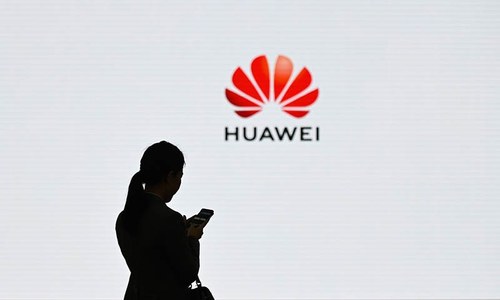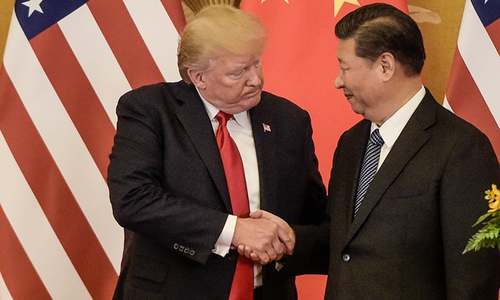BEIJING: The US has hit China where it hurts by going after its telecom champion Huawei, but Beijing’s control of the global supply of rare earths used in smartphones and electric cars gives it a powerful weapon in their escalating tech war.
Read: Some Google apps may stop working on Huawei phones amid US-China trade war
A seemingly routine visit by President Xi Jinping to a Chinese rare earths company this week is being widely read as an obvious threat that Beijing is standing ready for action.
“We should firmly grasp the strategic basis of technological innovation, master more key core technologies and seize the commanding heights of industry development,” Xi said during the visit, the official Xinhua news agency reported on Wednesday.
“Rare earth is not only an important strategic resource, but also a non-renewable resource,” he added, in comments likely to further fuel speculation.
China produces over 95pc of the world’s rare earths; US relies on China for over 80pc of its imports
However, analysts say China appears apprehensive to target the minerals just yet, possibly fearful of shooting itself in the foot by hastening a global search for alternative supplies of the commodities.
Xi’s inspection tour “is no accident, this didn’t happen by chance,” said Li Mingjiang, China programme coordinator at the S. Rajaratnam School of International Studies (RSIS) in Singapore.
“At this moment, clearly the policy circles in China are considering the possibility of using a rare earth exports ban as a policy weapon against the US.” The United States last week threatened to cut supplies of US technology needed by Chinese telecom champion Huawei, which Washington suspects is in bed with China’s military.
The US move has fanned speculation that Xi could impose retaliatory measures and in an indication of the importance of rare earths to the US, Washington did not include them in a tariffs increase on Chinese goods this month.
China occupies a commanding position, producing more than 95 per cent of the world’s rare earths, and the United States relies on China for upwards of 80 per cent of its imports.
Rare earths are 17 elements critical to manufacturing everything from smartphones and televisions to cameras and lightbulbs.
That gives Beijing tremendous leverage in what is shaping up largely as a battle between the US and China over who will own the future of high-tech.
“China could shut down nearly every automobile, computer, smartphone and aircraft assembly line outside of China if they chose to embargo these materials,” James Kennedy, president of ThREE Consulting, wrote on Tuesday in National Defence, a US industry publication.
China has been accused of using its rare earth leverage for political reasons before.
Japanese industry sources said it temporarily cut off exports in 2010 as a territorial row flared between the Asian rivals, charges that Beijing denied.
In 2014, the World Trade Organisation ruled the country had violated global trade rules by restricting exports of the minerals.
The case was brought by the United States, European Union and Japan, which accused China of curbing exports to give its tech companies an edge over foreign rivals. China has cited environmental damage from mining and the need to conserve supplies as the reason for any past limits on output.
While disruptive, any leverage gained from a supply block may be short-lived, experts said.
“This would accelerate moves to find alternative supply sources,” said Kokichiro Mio, who studies China’s economy at NLI Research Institute. China is not the only country with sizeable reserves of rare earths.
The United States Geological Survey estimated last year there were 120 million tons of deposits worldwide including 44 million in China, 22 million in Brazil and 18 million in Russia.
China is the leading producer partly because the environmental risks deter some countries from harvesting their own deposits. Mining rare earths creates toxic waste and the potential release of harmful radioactive tailings.
“There is a possibility that China would go ahead (with export curbs) but chances are what we are seeing now is just a threat,” Mio said.
“The US would be in trouble over a short period of time. But it is unlikely that they (China) want to pour oil on the flames.” During Monday’s visit, Xi was accompanied by Vice Premier Liu He, who has led China in fraught trade negotiations with Washington — a fact not lost on China-watchers.
Published in Dawn, May 23rd, 2019













































